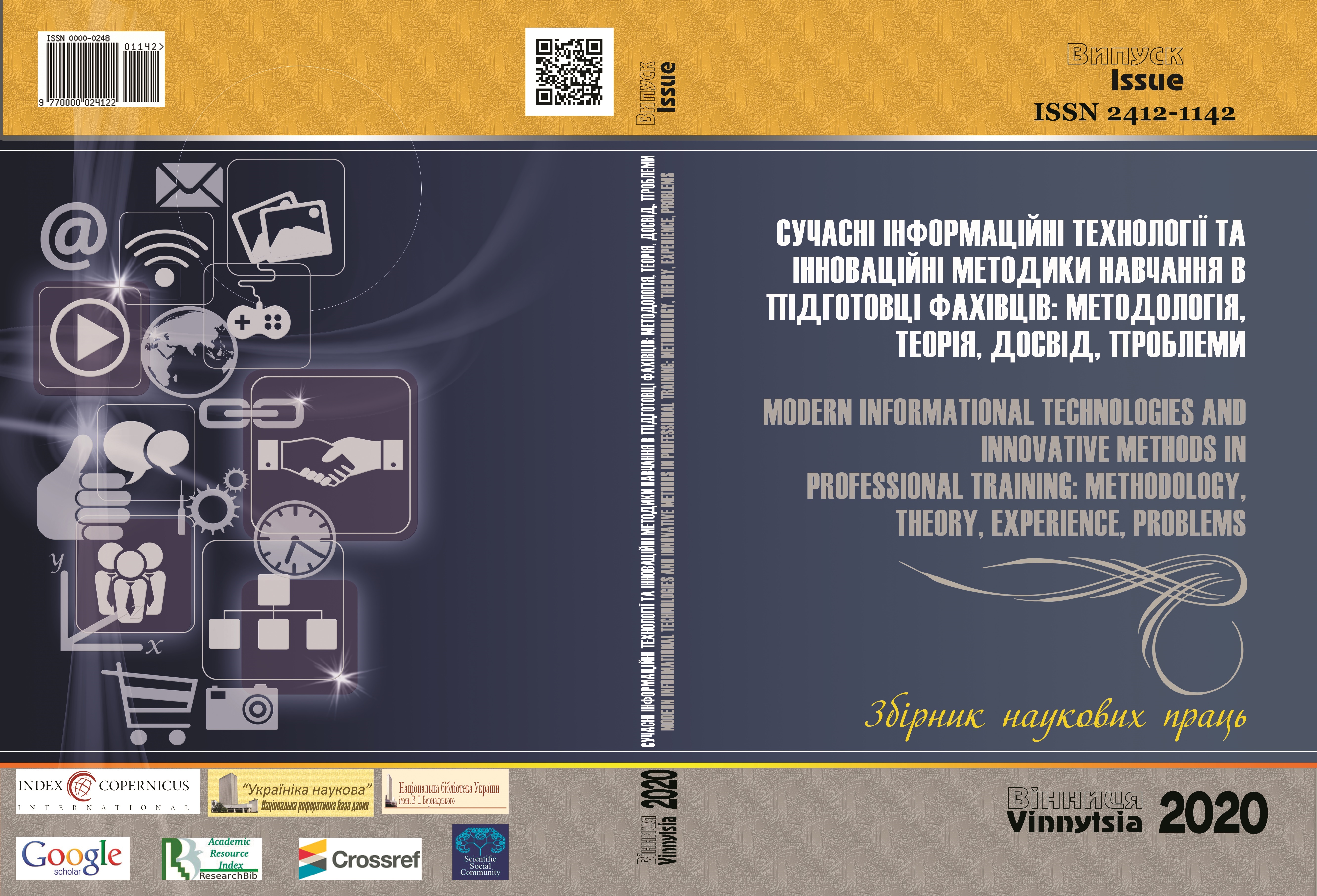THEORETICAL AND PRACTICAL ISSUES OF FOREIGN LANGUAGE TEACHING FOR ADULTS
DOI:
https://doi.org/10.31652/2412-1142-2020-58-169-177Keywords:
adult education, motivation, professional activity, foreign language learningAbstract
In recent years, the concept of lifelong learning has become increasingly important and prosperous. It proves that. That the need for learning, namely foreign language learning, is widely recognized in society by adulthood.
In addition to lifelong learning in the field of professional background, the non-professional field is also closely related to this concept today. The reasons for this development, on the one hand, are technological advances, the needs of which repeatedly arise in learning, for the successful solution of everyday and work situations. The individual is forced to study for a lifetime, not only in a professional but also in a private environment, as technological advances affect all areas of life.
Supporting human learning is at the heart of the challenge of pedagogical efforts, whether in the context of learning, planning, advice or even interventions in educational policy. Common psychological theories of learning, such as behaviorism or cognitivism, are commonly used to understand how people learn. However, they do not fit the specificities of adult learning. Although the education of children and adolescents is still significantly revied by the educational intentions of others, adult learning is more self-determined. Adults are trained on the basis of subjective importance, their learning is emotionally grounded, tied to their biography and intended to improve their quality of life. It is also firmly involved in professional, family and social contexts.
Current approaches to learning theory focus on aspects of adult learning. They allow us to develop an adequate understanding of the training needed for professional adult learning.
With the spread of English as a global language, there has been a new interest in adult learning research. What skills do they need? How does their motivation differe from that of other age groups? How can they become successful students?
As a professional, it is immediately clear that many have been stuck in English since school. English is the most important foreign language in Europe. There is hardly a profession in which it is not needed. However, a business letter in English or an English presentation is a challenge for many.
Downloads
References
Knowles, M. (1980) The modern practice of adult education: From pedagogy to andragogy. New York:
Cambridge Adult Education Company https://pdfs.semanticscholar.org/ 8948/296248bb f58415cbd21b
a3e4b37b9c08b1.pdf
Cattell, Raymond B. (1963). Theory of fluid and crystallized intelligence: A critical experiment. Journal of
Educational Psychology 54: 1–22. https://psycnet.apa.org/record/1963-07991-001
Salthouse, Timothy (1992). Mechanisms of age-cognition relations in adulthood. Hillsdale, New Jersey: L.
Taylor & Francis. ISBN 978-0-8058-1129-2. https://www.crcpress.com/Mechanisms-of-Age-cognition-
Relations-in-Adulthood/Salthouse/p/book/9780805811292
Burns, R. (1995) The adult learner at work. Sydney: Business and Professional PublishingHaughey, D. (no date)
Smart Goals. https://www.projectsmart.co.uk/smart-goals.php (accessed 15 February 2016)
Kern, N. (2013) ‘Technology-integrated English for Specific Purposes lessons: real-life language, tasks, and
tools for professionals’, in Motteram, G (ed.) Innovations in learning technologies for English language teaching.
British Council. https://www.teachingenglish.org.uk/sites/teacheng/files/ C607%20Information%20and%
Communication_WEB%20ONLY_FINAL.pdf (accessed 10 February 2016).
Downloads
Published
Issue
Section
License
Copyright (c) 2021 Modern informational technologies and innovative methods in professional training: methodology, theory, experience, problems

This work is licensed under a Creative Commons Attribution 4.0 International License.





